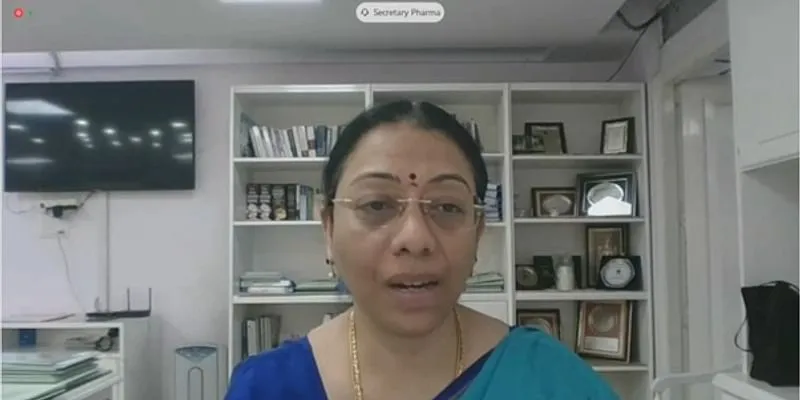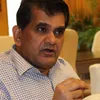India is poised to be the one-stop solution for health, says Piyush Goyal
COVID-19 outbreak had made a major impact on the Indian healthcare sector but the ecosystem fought the pandemic back with innovations.
The COVID-19 outbreak made a major impact on the Indian healthcare sector but the ecosystem fought back with innovations. While the pandemic helped in realising the gaps in healthcare, it also gave the opportunity to come up with new solutions.
Speaking at the sixth edition of ‘India Pharma & India Medical Device 2021,’ Cabinet Minister Piyush Goyal said that India has positioned itself as the go-to destination for healthcare majors.
“India is poised to be the one-stop solution for health,” he added.

S.Aparna, Secretary of the Department of Pharmaceuticals [Image Credit: Twitter]
Addressing the audience during the virtual event, S Aparna, Secretary of the Department of Pharmaceuticals, said that India is fortifying its position as a global leader in pharmaceutical and medical device manufacturing.
She added that the Indian pharmaceutical and medical device industry is working towards achieving the goal of “Make in India for the World”.
Reiterating the government’s commitment to ensure ease of doing business for global investors in the pharmaceutical and medical devices sectors, she said, “Government will provide stable, long-term policy environment to facilitate transformation of the sector.”
The event also saw the launch of the EY Report on Indian Pharmaceutical Industry 2021, which includes an analysis of the current scenario and future potential of the sector.
The pharmaceutical department secretary also informed that India has successfully supplied critical drugs and medical devices across the country without any disruption.
This comes in just a few days after the Union Cabinet approved the Production Linked Incentive (PLI) Scheme for pharmaceuticals for a period of FY 2020-21 to 2028-29.
According to the official statement, the scheme is expected to bring in Rs 15,000 crore worth of investment in the pharmaceutical sector.
The scheme is aimed at accelerating India's manufacturing capabilities, create employment, and also lead wider availability of affordable medicines.
Edited by Saheli Sen Gupta








